Federal election candidates for Edmonton Strathcona battle it out in SUB
Some topics discussed included post-secondary affordability, safe injection sites, and national pharmacare
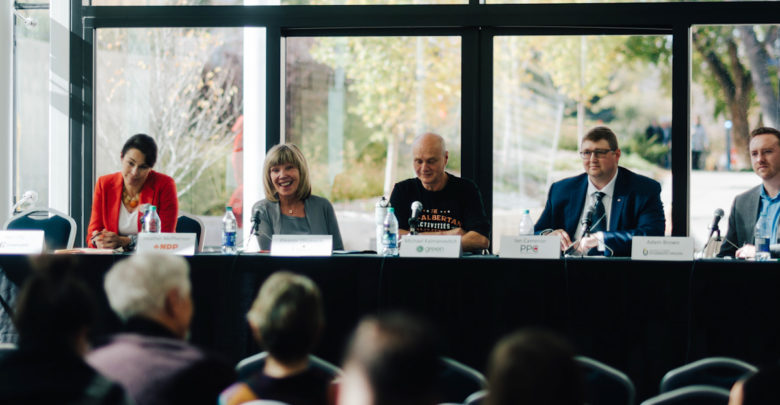 Nana Andoh
Nana AndohCandidates from Edmonton Strathcona vying for votes in the federal election faced off in the Students’ Union Building atrium in a forum.
Hosted by the Students’ Union Get Out The Vote campaign, the forum lasted an hour and a half. The event was moderated by Students’ Union vice-president (external) Adam Brown and included candidates representing the People’s Party of Canada (PPC), Liberal Party of Canada, New Democratic Party of Canada (NDP) and Green Party of Canada.
Candidate Sam Lilly, the Conservative Party of Canada representative, was not present at the forum. Brown said the organizers of the forum reached out “numerous” times to Lilly, but heard no response.
Candidates present at the forum lambasted Lilly for not attending, with some accusing him of hurting the democratic process. The Gateway reached out to Lilly but received no comment.
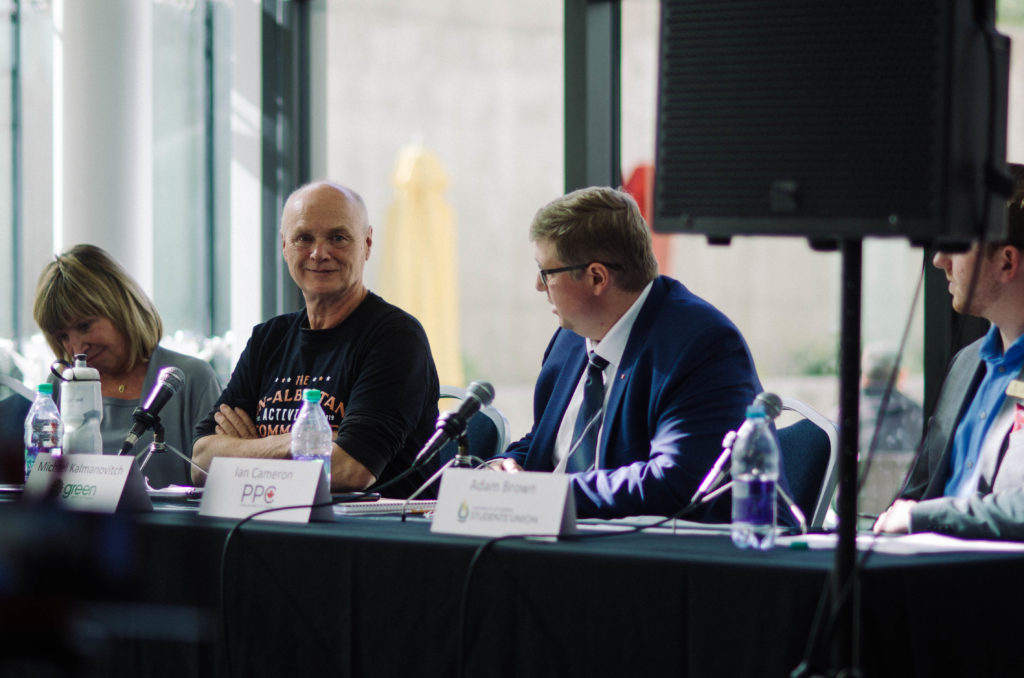
The candidates were first asked questions by Brown and then had an opportunity to answer questions from the audience members. Approximately 80 people attended the event.
Some of the topics addressed by the forum included post-secondary education affordability, safe injection sites, and national pharmacare.
Affordability of post-secondary education
Brown asked candidates what they personally and their parties would do to make post-secondary more affordable.
The candidate for the Green Party, Michael Kalmanovitch, said post-secondary is unaffordable for students now and that he hopes to change this.
“Well you guys are screwed,” he said. “We have made post-secondary education outside of the ability for most people to [afford].”
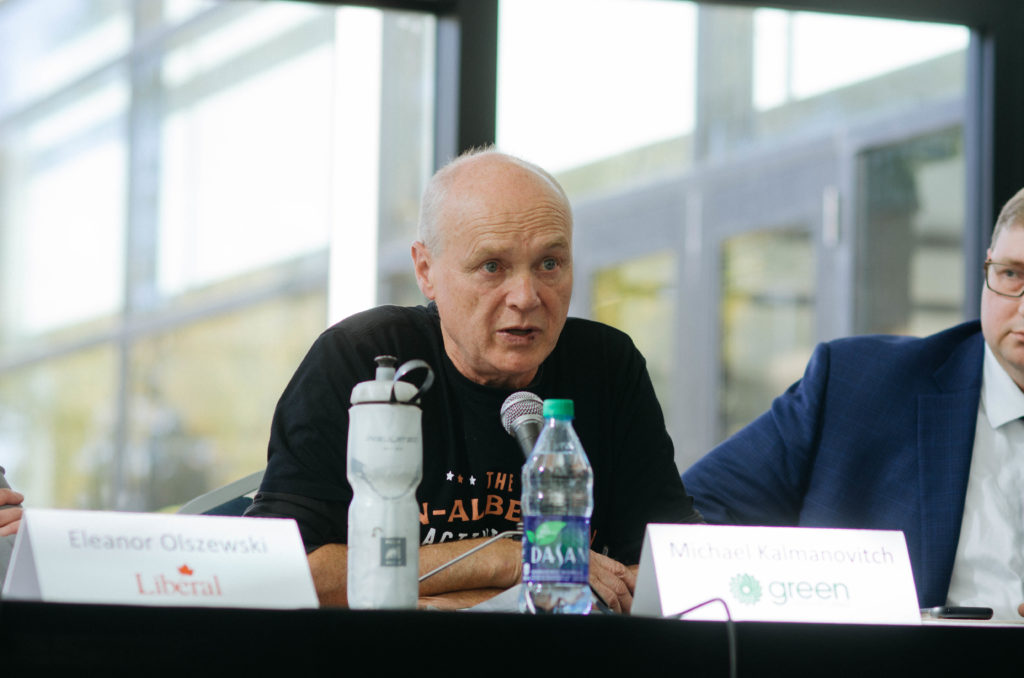
He added that students should not have to “gamble” by putting money up-front to attend university and then hope to recoup their losses after graduation. While Kalmanovitch said he does not agree with the Green Party platform of free tuition for all, he would rather have a more affordable system than the one today.
“I personally don’t agree with free university,” he said. “I believe that it should be greatly subsidized. Things that are free are abused.”
Liberal party candidate Eleanor Olszewski said education is the equalizer for everyone, as it provides opportunity. She said the Liberal government has already made post-secondary more affordable, and if re-elected would continue to do more.
“A Liberal government if re-elected, would increase Canada Student Grants by 40 per cent… and the grace-period for students,” she said. “We are committed to supporting students in Canada.”
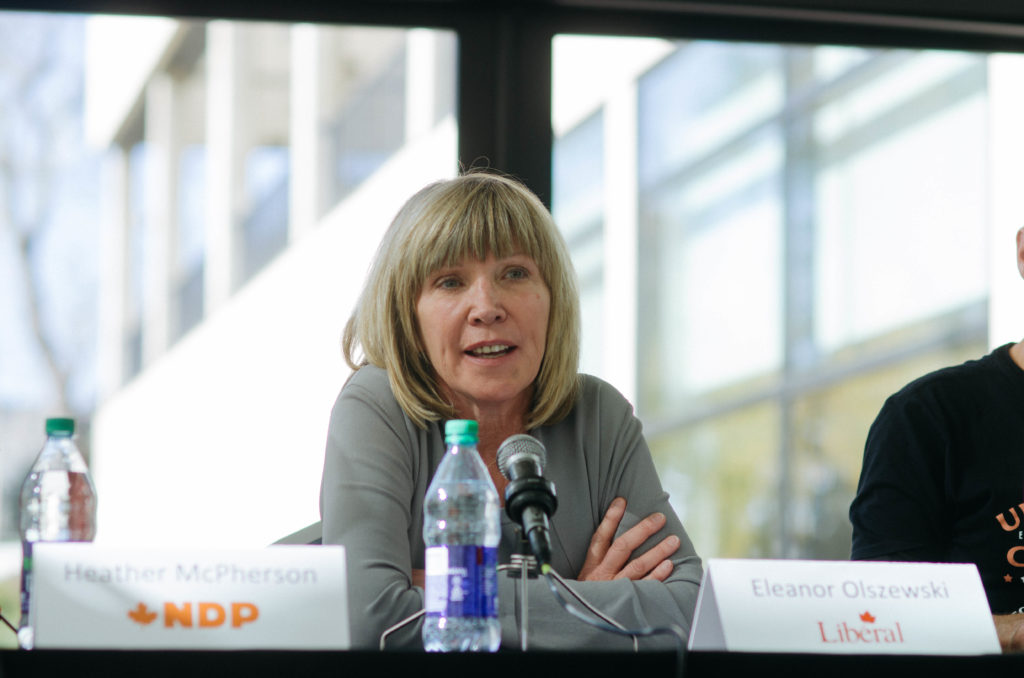
Olszewski added that post-secondary education expert Alex Usher said the Liberal platform scores top marks for its plan for the sector in terms of targeted student aid.
NDP candidate Heather McPherson said the party would take interest off student loans and have more non-repayable grants for student aid.
“We have got to stop profiting off the backs of students,” she said. “It shouldn’t be just the rich people who can attend [university].”
Further, if elected, McPherson said the party would work to move towards free tuition throughout its mandate.
PPC candidate Ian Cameron said the party’s main focus is on “unleashing Canada’s economic potential.” Therefore, it has no platform points on student affordability.
“[By] focusing on balanced budgets, our priorities — including education — can be funded,” he said. “That way education can be sustainable.”
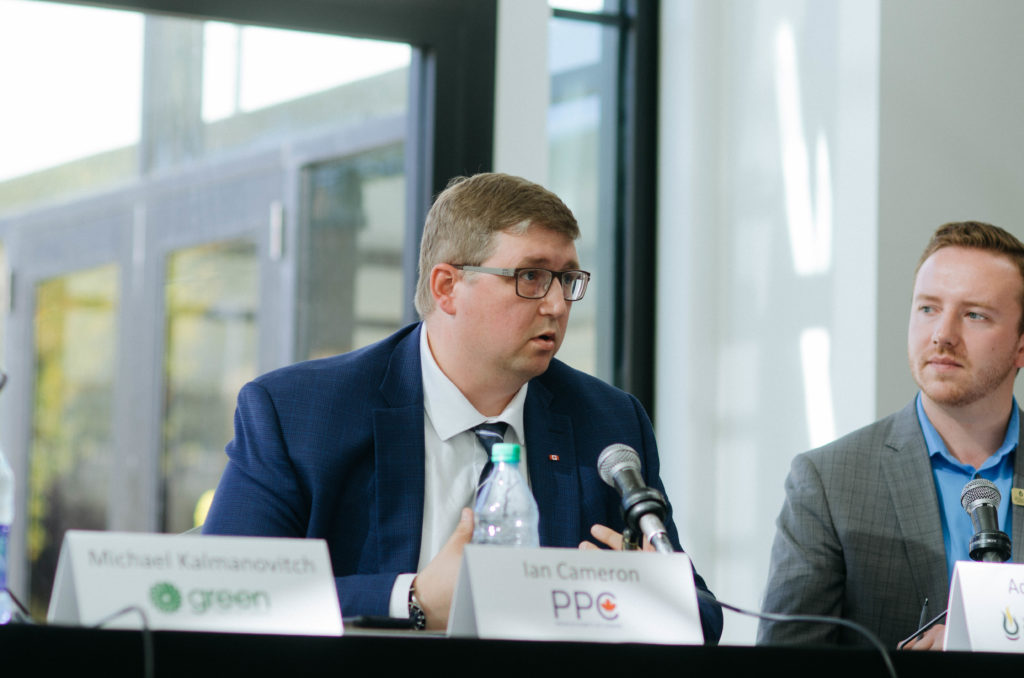
Cameron added that while government has “some” role to play in education, “personal responsibility” should also be a factor when it comes to post-secondary affordability.
National pharmacare plans, plus how parties plan to pay for it
A student attending the forum asked candidates if their party had a plan for national pharmacare, and if so, how they plan to finance the program.
Cameron said his party has no plan for national pharmacare.
“In short, no we do not have a plan [for national pharmacare],” he said. “Personally I think it is a great point, but we do need to focus on having the right protections to pay for that.”
He added that Canada must put its economic outlook in check first before making any large expenditure, like national pharmacare.
Kalmanovitch said having a national pharmacare plan is only “natural” and that it is a “significant” cost saving measure for Canadians.
“When we buy collectively, we reduce the cost,” he said. “We do that in many different situations in our society already.”
Olszewski said pharmacare “must” be implemented so as to ensure access for all Canadians to the medical system. She added that if people cannot work because they are sick it hurts our competiveness as a country and our economy.
“Personally, I would be committed to making sure [national pharmacare] is implemented,” she said.
McPherson said too many Canadians are just one illness away from being in “dire straits” financially. If elected, the NDP would not only implement a national pharmacare plan but a dental care and mental health care one as well. According to her, the dental care plan would go into play right away in 2020.
“Our full plan has been priced out by the Parliamentary Budget Officer,” she said. “It is long past that time where we actually look at a broken arm as an injury but a mental one as not an injury.”
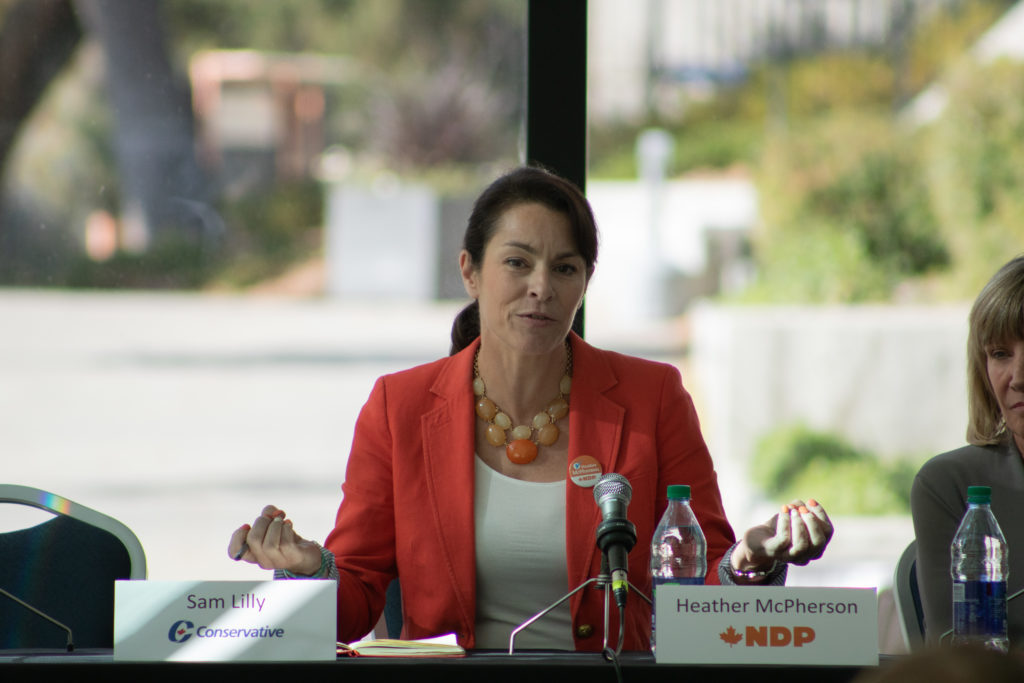
Candidates views on safe consumption/injection sites discussed
One question from the audience asked candidates to discuss what their views are on safe consumption sites.
McPherson said Canada needs to decriminalize addiction and would “ensure” communities would have safe injection sites, including at least one within Edmonton Strathcona.
“It is so absurd to listen to governments blame victims,” she said. “It is so hurtful. It causes people to lose their fathers, mothers, sons, and daughters.”
Cameron said he personally agrees with decriminalizing addiction. He added that safe injection sites might only be one idea to address the problem.
“There might be other ideas we could adopt,” he said. “We [the PPC] would certainly be open to listening to them.”
Kalmanovitch said there should be many more sites in Canada and that addiction should be recognized as a mental health care issue so it could be better addressed. Furthermore, he said all safe sites shouldn’t simply be concentrated in downtown cores of cities, but spread throughout.
“I think… they shouldn’t be all in downtown cores because it concentrates the impact of having those safe sites in [one area],” he said.
Olszewski said issues of addiction and mental health are a “crisis” Canada is facing. For her, safe injection sites only play one part of the solution.
“I do support harm reduction strategies,” she said. “That includes safe injection sites… and that people have access to mental health resources.”




